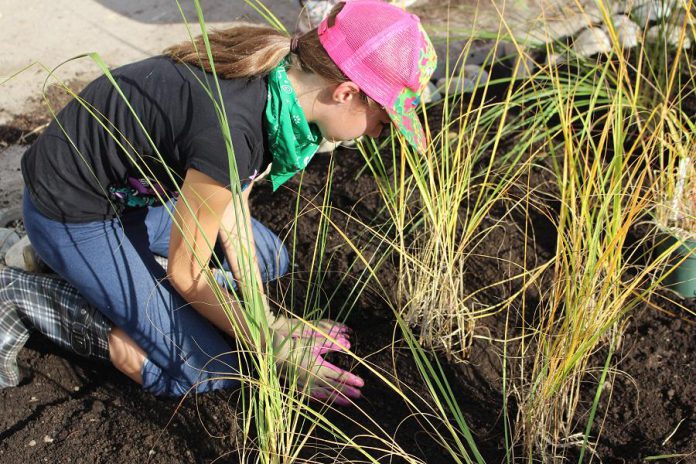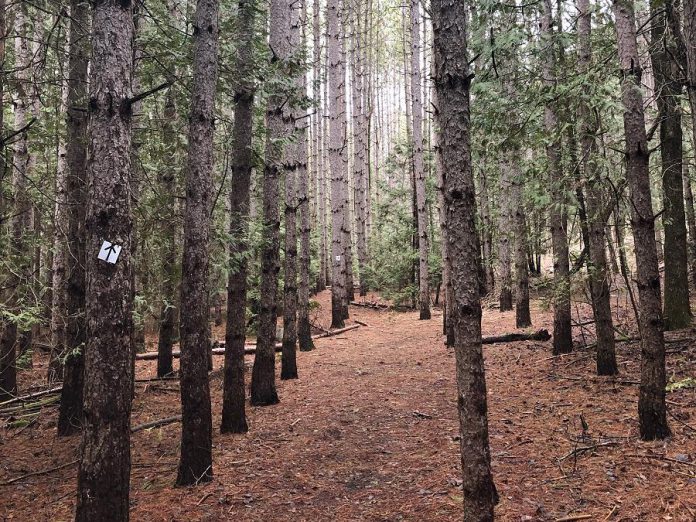
Deepening our relationship with nature is essential to climate action.
Again and again I hear this from Indigenous knowledge holders, environmental educators, scientists, and even students attending the Peterborough Children’s Water Festival: the stronger the relationship we foster with nature, the stronger our appreciation is for the many ways we are intertwined with nature, and the greater our capacity of climate action.
What better framework than friendship for understanding that relationship with nature?
This Friday — July 30, 2021 — is International Day of Friendship. This day was proclaimed by the United Nations General Assembly with the idea that friendship can inspire peace efforts and build bridges between communities.
What if humans and nature are two communities that can create bridges and peace through friendship?
I am curious what our friendship with nature looks like, how we can improve this friendship, and if better climate action may stem from this improved friendship.
What does our friendship with nature look like?

The COVID-19 pandemic and related restrictions kept many of us from connecting with our human friends in traditional ways. Many of us went outside more often to explore our yards, our neighbourhoods, local trails, waterways, and parks.
Throughout the lockdowns, the more I spent time with nature, the more I connected and the more I noticed the benefits of a stronger relationship with nature. I enjoyed a clearer mind, more joy in my heart from seeing things grow and change, and more excitement as I began to recognize which wild rabbit was which.
You might think that spending more time in nature as a response to COVID-19 restrictions is, like so much of pandemic life, an exercise in isolation rather than something akin to friendship.
The facts suggest otherwise. Several studies have demonstrated that when residents increase their exposure to nearby nature, they build a stronger sense of unity and belonging in their neighbourhoods. You might say that building a friendship with nature is the foundation to better friendships with our families, friends, and neighbours.
In 2017, the Great Lakes Commons confirmed this concept through the Water Friendship Project. This project identified the many vital relationships that water is the source of and presented the value and role of these relations in terms of water protection. The project offered concrete actions to guide water policy, curriculum, and advocacy.
The Water Friendship Project demonstrated how friendships flow and connect us like water itself — we are all connected by water and by rediscovering and sharing our relationship with water, we are also building unity and a sense of belonging across and within watersheds.
Bringing people together in Peterborough, Guelph, and Thunder Bay, the project demonstrated how a connection with water informs our other relationships, including with ourselves, with place, and with other people.
How can we improve our friendship with nature?

Spending time together is key to friendship. That said, spending more time together without also maintaining quality attention does not make for a better friendship.
Quality friendship are based on reciprocity and balance: friends both give and receive benefits, and friends do not wield exclusive power over each other.
Nature gives us many benefits. Peterborough Public Health’s Health in Official Plans: A Toolkit (2018) emphasizes how nature provides not only the basic essentials of life, but also improves health and mental health by alleviating adverse effects of stress, improving concentration, and helping us offset chronic illness, disability, and isolation.
I wonder: are we giving back benefits to nature in return for all nature is giving us? As I spend time with nature and soak up the many benefits nature provides, how am I giving back to this relationship? In friendship, you get what you give, as the song says. The same is true of our friendship with nature.
Here are some ideas on how we can interact with nature in a more reciprocal manner:
- Say miigwetch (thank you) to nature and nibi (water).
- Positively impact nature as much as possible. Plant or care for a tree, ride your bike (instead of driving your car), reuse a glass jar a million times, compost, remove garbage from waterways, etc.
- When nature upsets you, perhaps from flooding, sunburn, an empty rain barrel, or a tornado warning, try to understand why your friend is in this extreme state. What burdens has nature been carrying that are unbalanced or beyond their capacities? How can we lessen these burdens?
How can a better relationship with nature support climate action?

As I look at our relationship with nature through a framework of friendship, I see climate change as a result of an estranged friendship. We — as a local and global community — have exploited an unbalanced relationship with nature for decades.
That sort of treatment destroys friendships.
For decades, researchers and environmentalists have been asking why we aren’t taking more climate action as individuals, as communities, as companies, and as countries. Research suggests that this is because climate change seems too distant or abstract for most people.
I wonder, would climate action feel less distant if we approached it as an act of friendship with nature and our neighbours?
Many of the actions we can take to help improve our friendship with nature can also further climate action. For example, composting enriches our gardens — those backyard spaces for nature — and also diverts waste from landfills and reduces harmful methane gas emissions.
To give back in this friendship, we can also advocate for our friend nature in policy decisions that have impacts on the environment or in our response to climate change.
We need this friendship with nature to be healthy. The only positive pathway into a healthy future is to foster a better friendship with nature now.
You can find out more about International Day of Friendship at un.org/en/observances/friendship-day. To learn more about Great Lakes Commons and the Water Friendship Project, explore their website at greatlakescommons.org.


























